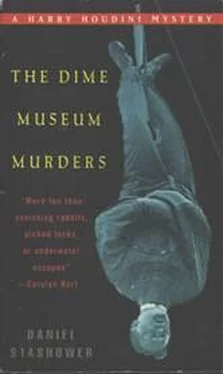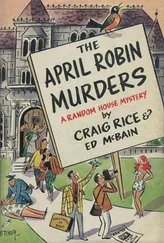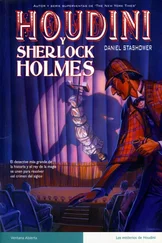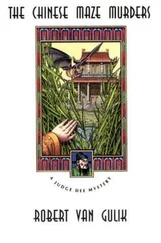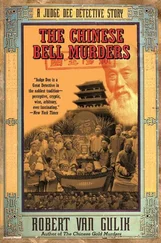We hurried up the front path and hammered at the door. Lieutenant Murray pushed past the butler and led us down the hall, throwing open the doors to the study without even breaking stride.
I don't know what I expected. Hendricks, sitting behind his desk, did not seem at all surprised to see that Harry and I were still alive. An expression of sadness and resignation washed over his face. He nodded at the lieutenant and set down the pen he had been holding. Pushing back his desk chair, he stood up and turned toward the bay window.
Harry saw it before I did. "Dash!" he shouted. "He has a pistol!"
Lieutenant Murray threw us both to the floor, shielding us with his body. His hand went to his belt, reaching for his own revolver. The gun hadn't even cleared its holster when we heard the shot.
Michael Hendricks slumped to the floor, a ghastly splash of red on the window behind him. I stumbled to the edge of the desk, feeling a wave of burning gorge rise in my throat. "It's finished, Dash," Harry said. "There's nothing more you could have done." I looked down at the body on the carpet and remembered what Hendricks had told me in the tunnel.
It's a difficult thing to watch a friend die-no matter what the reason.
XIV: The Justly-celebrated Self-liberator
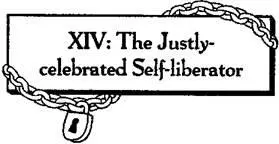
"You know, Houdini," said Lieutenant Murray, "you've already received the citizen's commendation medal and a special proclamation from the mayor. That would be enough for most people."
"I am not like most people," my brother said.
The lieutenant nodded in vigorous agreement. "Yes," he said, "I guess we can agree on that."
Five days had passed. In that time, much had changed in our lives. The death of Michael Hendricks had set a remarkable series of events in motion, culminating in a four-hour emergency conference at the mansion of Mr. William Russell Grace, the former mayor. The governor, half a dozen state representatives, and the exalted Thomas Collier Platt were also in attendance, and a more grave and earnest assembly could hardly be imagined.
Harry and I were not included in this august gathering. Instead, we had been summoned to the Grace mansion and installed in a palatial antechamber to await the outcome of the deliberations. Lieutenant Murray was sequestered with us, and he spent the long vigil with a comically dainty tea cup clutched in his meaty paws, staring quizzically at a mysterious array of tiny bread wedges adorned with cucumber.
"You know," the lieutenant informed us, "they're in there cooking up a giant fish story. They won't let Michael Hendricks be the villain of this piece. Wouldn't look right. Wait and see."
"But Mr. Hendricks was the villain," Harry insisted, pinching one of the cucumber parcels between his thumb and forefinger. "I regret that he felt compelled to take his own life, but that is hardly an expiation for his sins."
"They'll make Gittles the villain," Lieutenant Murray said. "It's the only way Hendricks gets to keep his reputation."
"Seems to me there's more than enough guilt for both of them," I said. "How's Gittles doing, anyway?"
"Not so good. He may live; he may die. Once these fellows are done with him, he may prefer the latter. How are you two doing? You both went through the meat grinder back there."
"We are recovering nicely, thank you," said Harry. "Apart from the cut on my arm, I am feeling very little pain." He fingered the heavy bandages on his forearm. "The doctor tells me I was fortunate that the blade did not do more damage."
"You were lucky," Lieutenant Murray agreed. "Both of you. You could just as easily have been killed. That was a hell of a foolish stunt you pulled."
Harry and I didn't bother trying to defend our actions. The lieutenant's reproaches had been mild compared to those of Bess, who had unleashed a blast of white hot fury when we finally straggled home after our adventure in the tunnel. The anger soon gave way to hysteria, followed by a long period of moody silence. It would be some days before the atmosphere returned to normal on Sixty-ninth Street.
For me, the five days since Michael Hendricks's death had been a time of moody introspection. I had spent many long hours alone with my thoughts, either sitting in my room or taking long walks through the city. One of these walks found me standing outside the Hendricks mansion, where, on a sudden impulse, I decided to call in and pay my respects. I cannot say what I hoped to gain by this gesture. Perhaps I sought to ease my conscience. Perhaps I sought solace of a different kind. Katherine Hendricks had received me in a small drawing room on the ground floor, her lovely eyes ringed with heavy shadows. I offered a few clumsy words of condolence, then passed over the packet of letters I had retrieved from Branford Wintour's study. She accepted them without a word, and I turned to take my leave.
"Mr. Hardeen," she said quietly, as I paused with my hand upon the doorknob.
"Yes?"
"He was quite taken with you. My father."
"You are kind to say so."
"He told me as much. 'One need not be an English lord to cut a path in this world.' That was how he phrased it."
I said nothing. My throat had grown very tight.
"Of course, my own prospects are much changed now," she said evenly. "Much changed."
I nodded.
"Lord Wycliffe and I must wait a decent interval, of course. We shall make the announcement next spring, I should think."
My hand felt quite hot on the doorknob. "I wish you
every happiness," I said. "I'll show myself out."
My last sight of her, as I closed the door behind me, saw her tossing the packet of letters onto the fire.
"Dash?" said Harry, recalling me to the present. "I believe the lieutenant asked you a question."
"I'm sorry?" I said, turning away from the window. "I was thinking of something else, I'm afraid."
"Never mind," Lieutenant Murray said. "Not important."
"He's been like this for days," Harry told the lieutenant. "Bess thinks he hit his head."
"My head is fine," I said. I gestured toward the closed doors where the council of city elders was taking place. "Can they really expect to hush the entire matter up?" I wondered. "You realize, Lieutenant, that my brother has never been one to suppress his own exploits."
"The public would be most interested-" Harry began.
"Tell me, Houdini," said the lieutenant. "Are your citizenship papers in order?"
The color drained from Harry's cheeks. "Don't be absurd!" he cried. "I'm as American as you are! I was born in Appleton, Wisconsin!"
"You're sure it wasn't Budapest?" He set down his tea cup as carefully as if it had been a hatching chick. "Look, Houdini, I don't give a tinker's damn whether you were born in Wisconsin or in Hungary or on the planet Jupiter. I'm just warning you. That's what they're going to use to keep you quiet." He sighed and looked at the closed doors. "These men always manage to get their way."
Matters developed much as the lieutenant had predicted. When the city worthies emerged from behind the closed doors, Harry and I were informed that certain information would be withheld from the general public so as to spare the Hendricks family any further distress. "I think poor Mrs. Hendricks has borne enough sorrow, don't you, gentlemen?" asked Mr. Grace. "Better for everyone if we keep this business to ourselves, wouldn't you agree?"
When it was clear that the Brothers Houdini were not prepared to argue, a climate of merry good fellowship prevailed-complete with whiskey and cigars and a series of ribald jokes from Mr. Platt. By the time the whiskey decanter had been drained and refilled three times, the company had grown extremely jovial indeed. I was enjoying a rubber of whist with a pair of aldermen and the junior senator when I happened to spy Harry across the smoke-filled room, deep in conversation with Mr. Grace. "That's the strangest request I've ever received, Mr. Houdini," I heard him say. "People usually want my help going the other way!" He clapped his arm across my brother's shoulders. "Let me see what I can fix up."
Читать дальше
